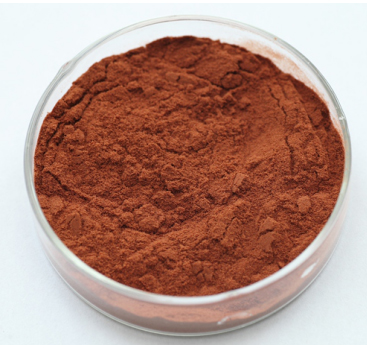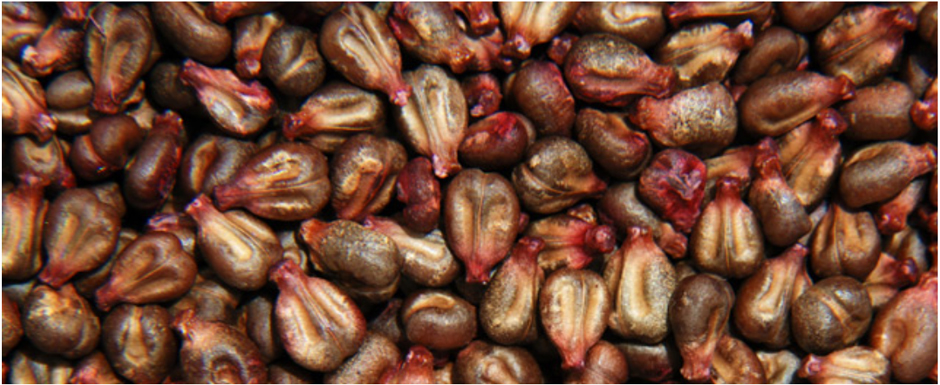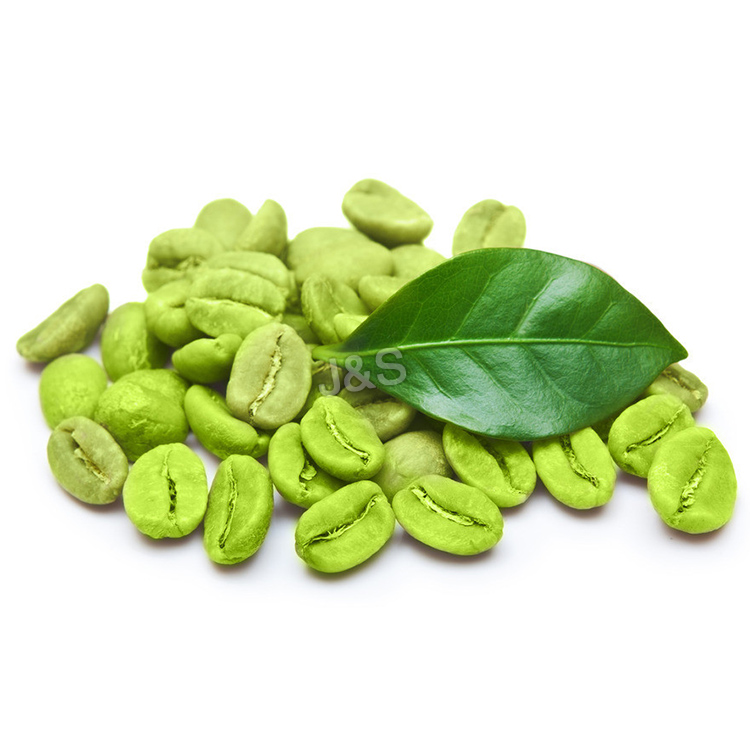Low MOQ for Grape seed extract Factory in Romania
Low MOQ for Grape seed extract Factory in Romania Detail:
[Latin Name] Vitis vinifera Linn
[Plant Source] Grape seed from Europe
[Specifications] 95%OPCs;45-90% polyphenols
[Appearance] Red brown powder
[Plant Part Used]: seed
[Particle size] 80 Mesh
[Loss on drying] ≤5.0%
[Heavy Metal] ≤10PPM
[Pesticide residue] EC396-2005, USP 34, EP 8.0, FDA
[Storage] Store in cool & dry area, keep away from the direct light and heat.
[Shelf life] 24 Months
[Package] Packed in paper-drums and two plastic-bags inside.
[Gerneral feature]
- Our product has passed the ID test by ChromaDex, Alkemist Lab. and other
third-party authoritative testing institutions, such as detection;
2. The pesticide residues match (EC) No 396/2005 USP34, EP8.0, FDA and other foreign pharmacopoeia standards and regulations;
3. The heavy metals in strict accordance with the foreign pharmacopoeia standard controls, such as USP34, EP8.0, FDA, etc.;
4. Our company set up a branch and import raw materials directly from Europe with strict control of heavy metal and pesticide residue. Aslo ensure the procyanidins content in grape seed is more than 8.0%.
5. OPCs over 95%, polyphenol over 70%, high activity, the oxidation resistance is strong, the ORAC more than 11000.
[Function]
Grapes (Vitis vinifera) have been heralded for their medicinal and nutritional value for thousands of years. Egyptians ate grapes a very long time back, and several ancient Greek philosophers spoke about the healing power of grapes — usually in the form of wine. European folk healers made an ointment from the sap of grapevines to treat skin and eye diseases. Grape leaves were used to stop bleeding, inflammation, and pain, such as the kind brought on by hemorrhoids. Unripe grapes were used to treat sore throats, and dried grapes (raisins) were used for constipation and thirst. Round, ripe, sweet grapes were used to treat a range of health problems including cancer, cholera, smallpox, nausea, eye infections, and skin, kidney, and liver diseases.
Grape seed extracts are industrial derivatives from whole grape seeds that have a great concentration of vitamin E, flavonoids, linoleic acid and phenolic OPCs. The typical commercial opportunity of extracting grape seed constituents has been for chemicals known as polyphenols having antioxidant activity in vitro.
Product detail pictures:

Related Product Guide:
Gaining client pleasure is our company's aim without end. We are going to make excellent efforts to create new and top-quality goods, meet your special requirements and provide you with pre-sale, on-sale and after-sale companies for Low MOQ for Grape seed extract Factory in Romania , The product will supply to all over the world, such as: Mexico, Uruguay, Slovakia, we rely on own advantages to build a mutual-benefit commerce mechanism with our cooperative partners. As a result, now we have gained a global sales network reaching the Middle East, Turkey, Malaysia and Vietnamese.
https://www.ihealthtube.com
Tamara St. John treated her own breast cancer. One of the therapies she used was consuming apricot kernels. Here she talks about the success she had and how the natural cyanide in the kernel helps kill cancer cells.
Get Rhodiola here: https://www.sungazerherbs.com/index.php?route=product/product&path=59&product_id=51
Subscribe ► https://bit.ly/1UrLvQF
Like me on Facebook ► https://on.fb.me/1hmwFN7
Follow me on Twitter ► https://bit.ly/1T9h9Qo
Follow me on Instagram ► https://www.instagram.com/brandongoji/
Learn more at my website ► https://www.brandongoji.com/2017/03/07/the-health-benefits-of-rhodiola-rosea/
Adaptogenic herbs have been enhancing the human experience for thousands of years. With this ancient knowledge of adaptogenic herbs we can continue to utilize it and experience life to the fullest. Today we are going to explore the benefits and history of the adaptogenic herb Rhodiola Rosea.
This sweet and bitter tasting herb has been used for thousands of years in Europe and Asia. It has been classified as an adaptogenic herb by russian researchers where it was used to enhance the stamina in olympic athletes. Adaptogenic simply means it increases the body’s resistance to chemical, biological, and physical stress.
With over 140 chemical compounds found in Rhodiola, it is no wonder it has such beneficial effects.
There is a breath taking long list of benefits that are claimed and they are: Astringent, relieves headaches, anemia, anti tumor activity by increasing resistance to toxins,, strengthens the nervous system, supports thyroid function and the entire “HPAT” system which helps reduce fatigue, this allows for better athletic performance, protects muscle tissue during physical exertion, fights off infections, supports the GI tract, slows aging related diseases, enhances immunity, enhances memory, regulates metabolic function, aids in weight loss, improves sexual function, fights depression through serotonin and dopamine regulation in the brain. With the mood regulating effects it is often known as a work productivity enhancer. Maybe we should call it the 4 hour work week herb.
Apparently Vikings used this herb to increase their physical strength. “Viking roar”
The species Rhodiola Rosea has been most researched so watch out for brands that use different species. You may not receive the same benefits as cited in the research articles as they have not been studied as extensive as Rosea.
Since 1960, 180 pharmacological, phytochemical, and clinical studies have been published regarding this herb. The key phytochemicals are rosavin, rosarin, rosin, salidroside, and p-tyrosol and they are found in higher concentrations particularly in Rosea. There are other antioxidants, including proanthocyanidins, quercetin, gallic acid, chlorogenic acid and kaempferol. Due to the high antioxidant content of this herb it is good at neutralizing toxins which can help eliminate migraines and other symptoms of toxicity. This also plays a key role in slowing down the aging process.
Rhodiola is a perennial flowering plant. It is grown in cold regions all around the world. It commonly grows on sea cliffs and mountains at altitudes around 10,000 feet. This altitude resistance can be passed on to us when we consume this herb. Which makes it a good supplement for airplane travelers.
Some of its first recorded uses were in Tibet and China where over 30 species are found. Some of those towns were located at an altitude over 10,000 feet. It has even has been documented as Rodia Riza in the De Materia Medica by the Greek physician, Dioscorides, which dates back as far as 77 CE. The average person consumes pharmaceutical medications that only date back about 100 years. Which medicine will you chose? Leave a comment below and let’s talk about it.
It is often used in Traditional Chinese Medicine to nourish Qi which in my perspective means the natural electrical conductivity that our bodies have. The key to longevity. Chinese emperors sent expeditions to Siberia to collect Rhodiola. It was highly regarded as they called it the Golden Root. Up in the Siberian mountain villages they gift bouquets of rhodiola to couples before marriage as a way to enhance fertility and ensure they have healthy children.
Some independent testimonies of this herb on health forums claim that it makes some individuals really fatigue rather than energised. This can be a short term effect on those with ADHD, a lack of sleep and endocrine weakness. The sides effects could be from the body trying restore itself to a more balanced state. If it makes you tired try taking it before bedtime. If symptoms persist either stop taking it or seek professional advice. For others take it in the morning as it can be very energising and cause insomnia.
The company can keep up with the changes in this industry market, product updates fast and the price is cheap, this is our second cooperation, it's good.







